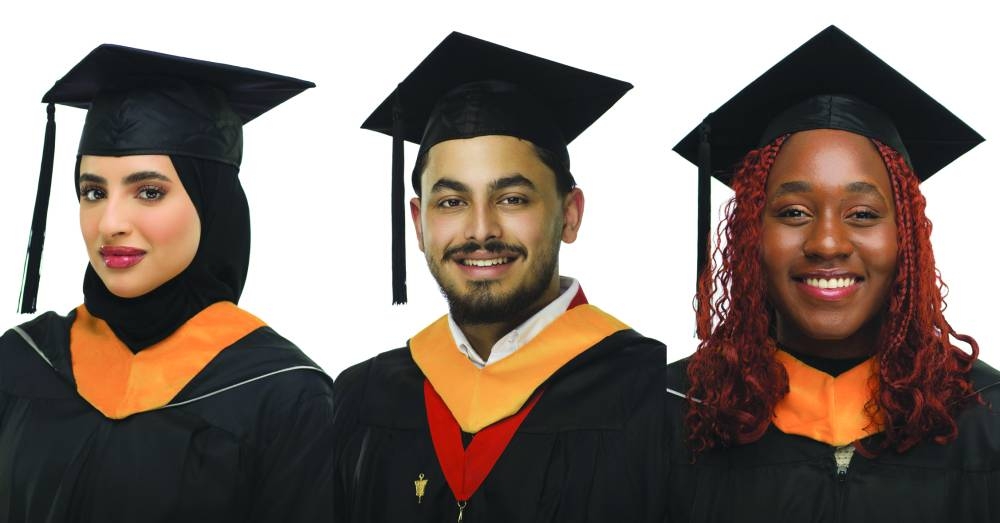Georgetown University in Qatar (GU-Q) will honour the personal triumphs of its newest graduating class in May.
Their unique stories are a testament to how GU-Q’s holistic education enriched their sense of purpose, a statement said.
Moza al-Kaabi, an International Politics major, excelled academically and in leadership roles. Serving as president of the Qatari cultural organisation, Al Liwan Club, and chair of the Georgetown Leadership Ambassadors programme, she planned a number of events and acted as university ambassador for a roster of diplomatic speakers, scholars, and foreign affairs practitioners visiting GU-Q.
“Georgetown University offers many opportunities that encourage undergraduate students to realise and exercise their full potential,” she reflects, highlighting the connections she made including enriching experiences such as a semester abroad and helping to organise the Georgetown Model United Nations.
Internships at the Ministry of Foreign Affairs and mentorship from senior diplomats through the Diplomat for a Day programme were also pivotal to her growth, laying a solid foundation for her career aspirations in the political sphere.
For social justice advocate Renee Vongai Mutare, GU-Q allowed her gain a broader perspective on how to address the underlying challenges facing her country, Zimbabwe. “I aimed to lay a strong groundwork in health justice and economics,” she said, majoring in International Economics, and conducting grant-funded health research. She also co-authored a conference paper with a Georgetown post-doctoral fellow on Covid-19 governance.
But it was the way the university encouraged her to live her values that really made an impact, as a leader on campus of the Black Student Association, and through her community service. Her work has been recognised through prestigious awards from the university including the Education and Social Justice Fellowship, Human Fraternity Fellowship, Penner Family Award, and the Lena Landegger Community Service Award.
Brought up in Nepal during and after the 1996-2006 civil war, Pragyan Acharya said “the impact of conflict and political turmoil on my education was significant, and inspired me to pursue education and conflict as a course of study.”
Working with his advisors, he personalised his International Politics major with an Education, Inquiry and Justice minor, completed during a semester abroad at the Washington, DC campus. An Education and Social Justice Fellowship, and an Honors thesis allowed him to conduct substantive research on education, while an experiential learning trip to Nepal through the Zones of Conflict, Zones of Peace programme further allowed him explore his interests and share his experiences with his peers, laying a solid foundation for graduate studies in the field.
Pragyan is also a champion debater and debate leader. He contributed to GU-Q’s dominance on the national debate league, and served as a board member and coach for Debate Network Nepal.

Moza al-Kaabi, Pragyan Acharya and Renee Vongai Mutare.
